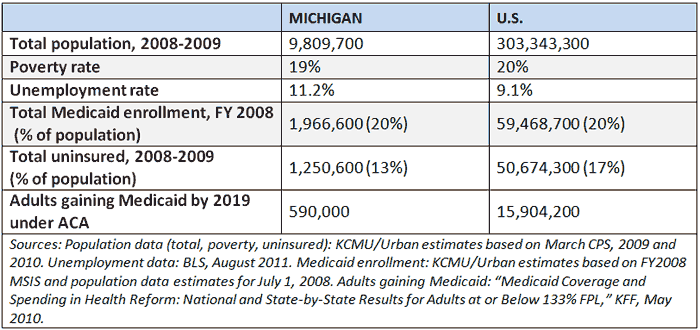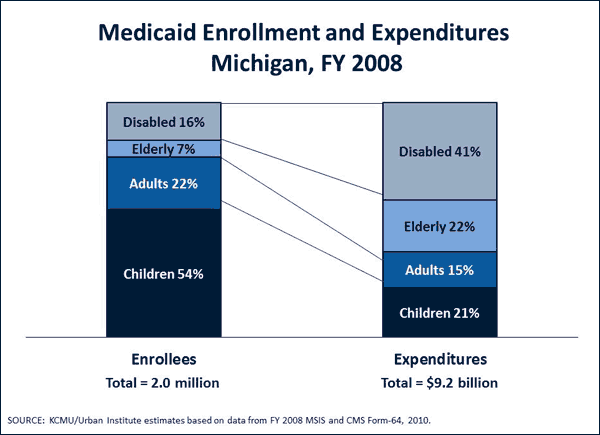
Heather Holloway
St. Joseph, Michigan
- profile
- more about medicaid
- state data
Heather Holloway, age 39, has a congenital disorder that left her with permanently dislocated hips and knees. She also struggles with depression. Heather relies on Medicaid to cover her health care needs, which are modest but critical. She needs regular check-ups and preventive care, prescription medicine for her depression, new crutches every several years, and dental care. After Michigan eliminated vision benefits for adults in Medicaid, Heather had to buy glasses on her own, using Christmas money given to her by a relative. Home health services covered by Medicaid help Heather with everyday chores that she has trouble doing on her own, enabling her to live independently. Although she is currently unemployed, Heather is an active volunteer in her community.
One of the important kinds of help that Heather gets from Medicaid is coverage of the prescription drugs she takes to treat her depression. Staying in good mental health enables Heather to be productive and stay engaged with her friends and community. Medicaid is the largest single source of financing for mental health care in the nation, covering over a quarter of all spending. Medicaid plays such a large role because it covers many people with significant needs and it pays for a broad range of services. About one in 20 Medicaid beneficiaries have a mental illness severe enough for them to receive Supplemental Security Income (SSI), a federal cash assistance program for low-income aged, blind, and disabled individuals that triggers automatic eligibility for Medicaid in most states. However, about two-thirds of Medicaid beneficiaries who use mental health services qualify for Medicaid on some other basis.
For more information on Michigan’s Medicaid program and other data on health coverage, access and expenditures, please visit Michigan’s page at www.statehealthfacts.org.
"I need to be able to walk. I need to be able to live. I need Medicaid so I can at least have a reasonably decent livable life."




